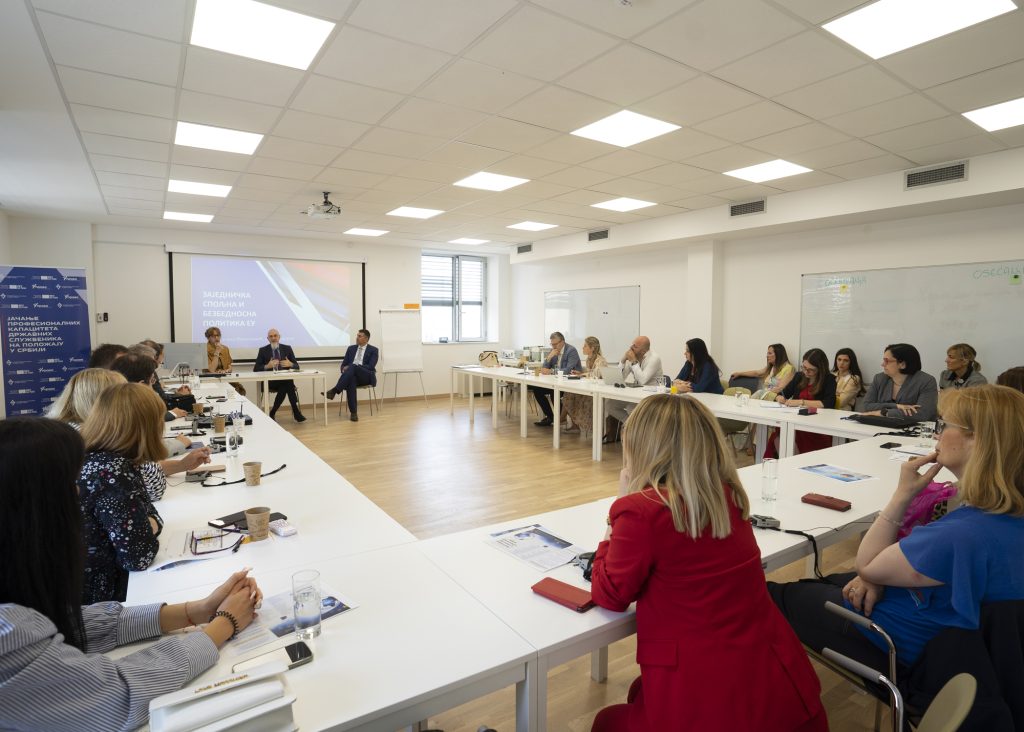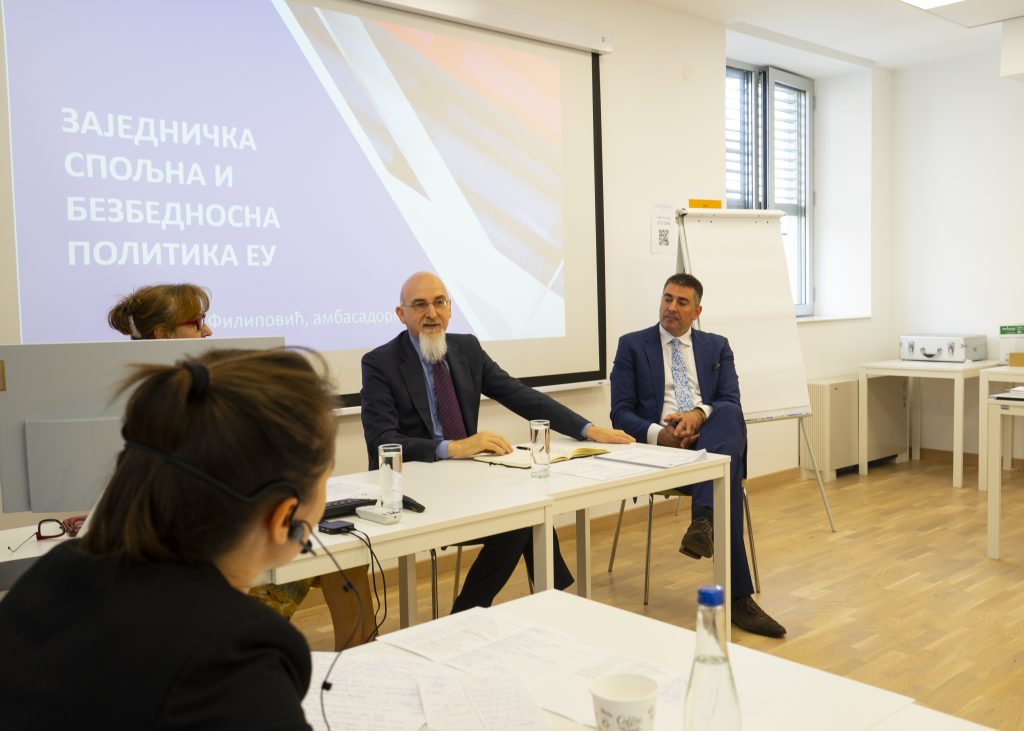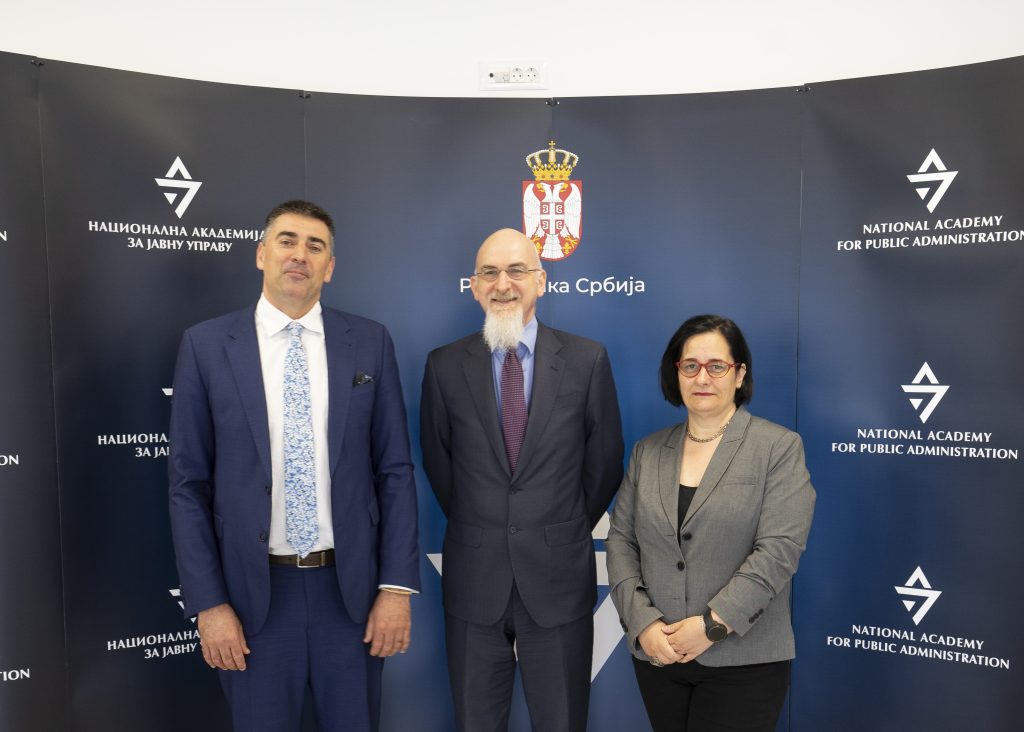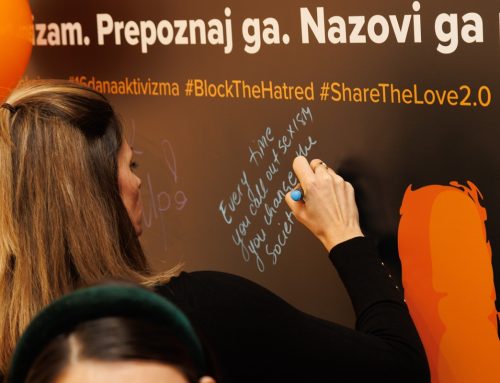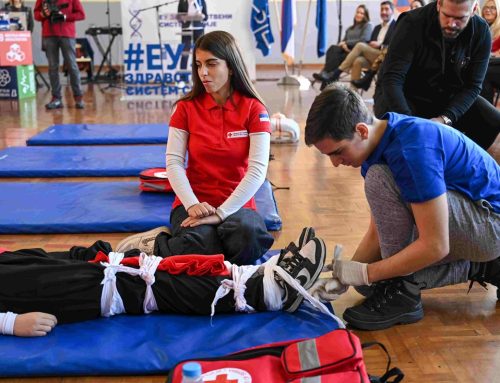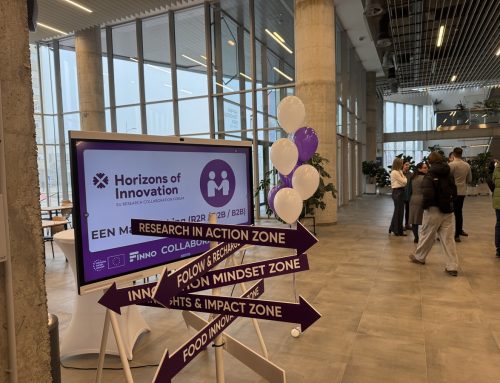They make important decisions and directly implement new procedures that make life easier for citizens. Civil servants should have new skills and knowledge, so that the process of public administration modernization runs smoothly.
The project “Strengthening professional capacities of Senior Civil Servants in Serbia” funded by the EU is entering its final phase. The fourth group of participants of the “Fundamentals – Essential Issues” module successfully completed the training programme, while the trainings of the “Honeycombs” module are continuously implemented, which resulted in more than 150 trained senior civil servants. The formal end of the training cycle before the summer break was marked by two important lectures and lecturers who spoke to civil servants on current topics for society and Serbia: the European Union and digitalization.
The Italian Ambassador to the Republic of Serbia, Luca Gori, visited the National Academy for Public Administration, and on that occasion, he gave a lecture and talked to the participants of the “Membership in the European Union”, which is part of the project activities. The training participants, senior civil servants from various institutions, had the opportunity to hear from the Ambassador what the cooperation between Serbia and Italy is like, especially in the economic sector, as well as about all the benefits that both countries have from the cooperation.
The Ambassador spoke about the priorities for the Western Balkans countries in the negotiation process, and the first priority was security as the foundation for the security of all citizens and further development. Also, he talked about the cooperation between Serbia and Italy in all sectors, as well as the fact that at the 90th International Agricultural Fair in Novi Sad, Italy was a partner country with as many as 21 companies participating in the Fair.
Apart from this theoretical part of the European Union Membership training, the participants will have the opportunity to visit the institutions in Brussels in the practical part of the training and learn about the work and way of functioning of the EU administration. So far, two visits have been carried out as part of the project, and the participants pointed out that it is very important for them to see the system first hand and the way of work of colleagues in the EU.
The second lecture to senior civil servants in the Republic of Serbia was held by the Minister of Information and Telecommunications, Mihailo Jovanović. The topic of the lecture was “Realizing the full benefit of digitalization”, and senior civil servants from various institutions had the opportunity to expand their knowledge in the field of eGovernment and digitalization.
Minister Jovanović pointed out that, in order to promote digitization projects, the Government of the Republic of Serbia formed the Office for IT and eGovernment, which became a locomotive of digitization. He added that the simultaneous establishment of the National Academy for Public Administration, which successfully transferred all the knowledge and skills accumulated in the digitalization process to employees in the public administration, is equally important, because only with new knowledge and skills is it possible to further transform the public administration into an even more efficient service for the citizens.
The European Union provides assistance to Serbia through the development of electronic portals and services that are at the foundation of the efficient functioning of public administration. The EU helped establish eGovernment by creating institutional prerequisites, donating equipment, creating centralized registers of databases and developing the eGovernment portal. Only for the development of the Public Procurement Portal, the EU provided EUR 3.2 million in grants.
Senior civil servants who are training participants in the project “Strengthening professional capacities of senior civil servants in Serbia” have the opportunity, through a project implemented by the National Academy for Public Administration and financed by the European Union, to acquire new knowledge and skills with the aim of professionalizing public administration and the creation of an administration tailored to all citizens, to talk with prominent figures from their fields and to create together a network of ideas that will contribute to the improvement of our society.
So far, Serbia has received almost four billion euros in grants from the European funds, of which EUR 215 million were spent solely on public administration reform. Annually, around EUR 200 million are allocated from the pre-accession IPA funds for public finance management and improving the work of local self-governments and independent institutions. Public administration reform is one of the most important elements of Serbia’s EU accession process, and in 2014 it was also put on the forefront of the negotiations. A modern and professional public administration is a key element for every EU member state in order to effectively implement laws and transparently manage funds from the EU funds.


